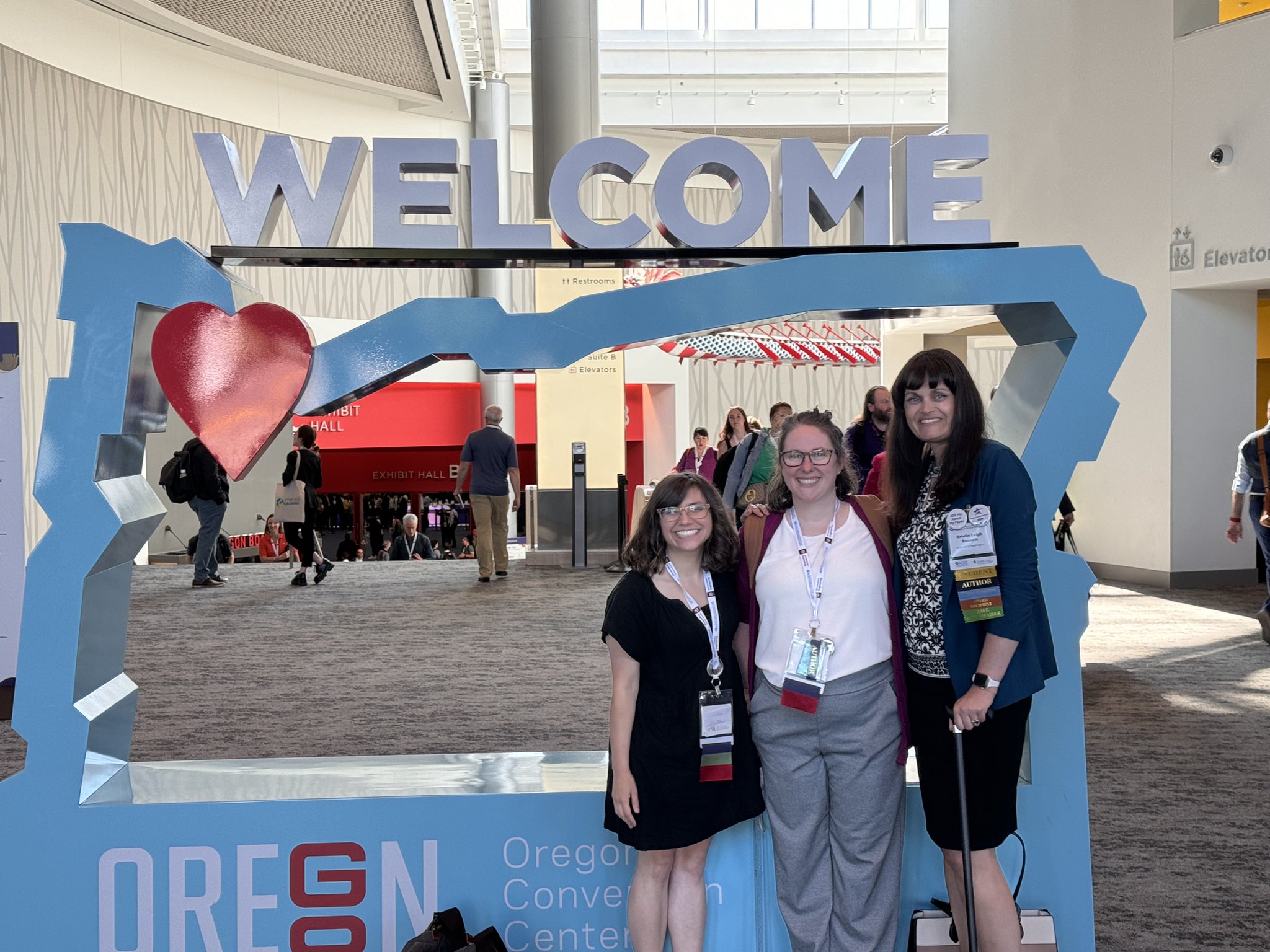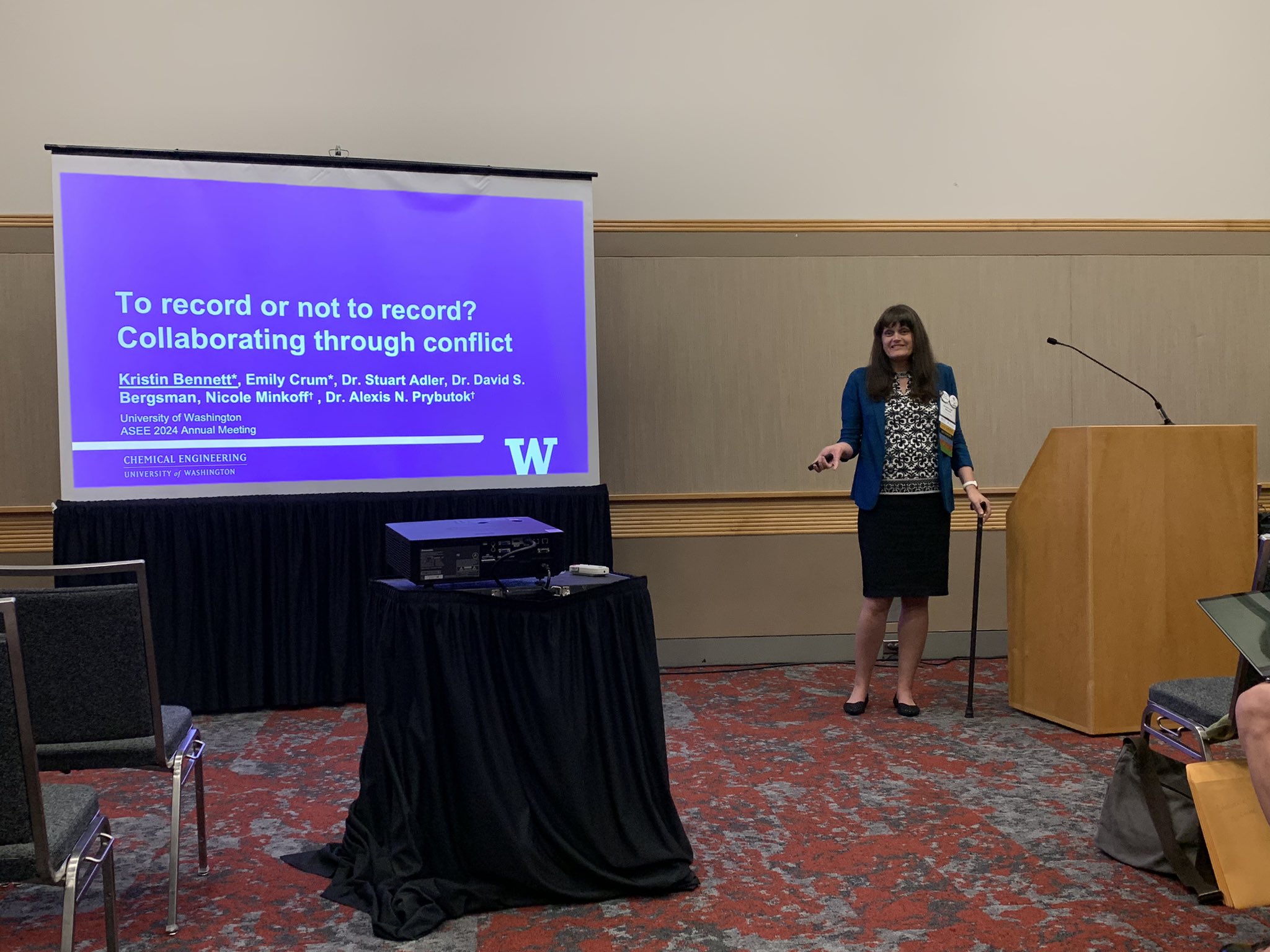By Ro Stastny
August 7, 2024

(From left) Alex Prybutok, Nicole Minkoff and Kristin Bennett at the 2024 ASEE Annual Conference in Portland, Oregon.
A publication co-authored by students, faculty and staff from the UW chemical engineering department’s Diversity, Equity, Inclusion and Accessibility (DEIA) committee received two awards at the 2024 American Society of Engineering Education (ASEE) Annual Conference this summer.
The ASEE Annual Conference brings together engineering educators to learn and share innovative approaches to improve learning outcomes for their students. ChemE DEIA committee members attended the conference in Portland this past June, where undergraduate student Kristin Bennett formally presented key data points from the committee team’s collaborative paper on class recordings and accessibility.
The publication received the Professional Interest Council (PIC) I Best Paper award over all 11 divisions within that council. It also received the 2025 Joseph J. Martin Award, an honor for the most outstanding paper presented within the Chemical Engineering division.

ChemE student Kristin Bennett presents at the 2024 ASEE Annual Conference.
In their paper, the authors address the impact of lecture recording in classrooms on student learning outcomes. This has been a topic of contention among educators and disability advocates that has become broadly debated in the wake of the COVID-19 pandemic, and with rising technology integrations in learning. The authors document the process that the department used to identify the need for better access to department courses. They cite multiple sources to support their consensus that lecture recordings as a supplemental learning material are beneficial for all students regardless of disability status, and do not correlate with course performance or a lack of class engagement.
In survey responses that were collected in support of this publication, ChemE students shared diverse reasons for using class recordings. However, very few of them reported using recordings as a replacement for attending classes, as some professors have feared. With this qualitative information as a basis, the authors then highlight the actions that were subsequently taken within the UW ChemE department to set new teaching standards and ensure that all instructors were able to deliver lecture recordings.
Since 2016, the ChemE DEIA committee has opened cross-functional conversations around diversity, equity, inclusion and accessibility, serving to make continuous strategic improvements that create a safe and supportive community for all.
Co-authors
Stuart Adler, ChemE associate professor
Kristin Bennett, ChemE undergraduate student (B.S. ‘25)
David Bergsman, ChemE assistant professor
Emily Risë Crum, ChemE alumna (B.S. ‘23)
Nicole Minkoff, ChemE undergraduate adviser
Alex Prybutok, ChemE assistant teaching professor
To Record or Not to Record? Collaborating through Conflict
by Emily Risë Crum, Kristin Leigh Bennett, Stuart Adler, David S Bergsman, Nicole Minkoff, and Alexis N Prybutok, presented at 2024 ASEE Annual Conference & Exposition.